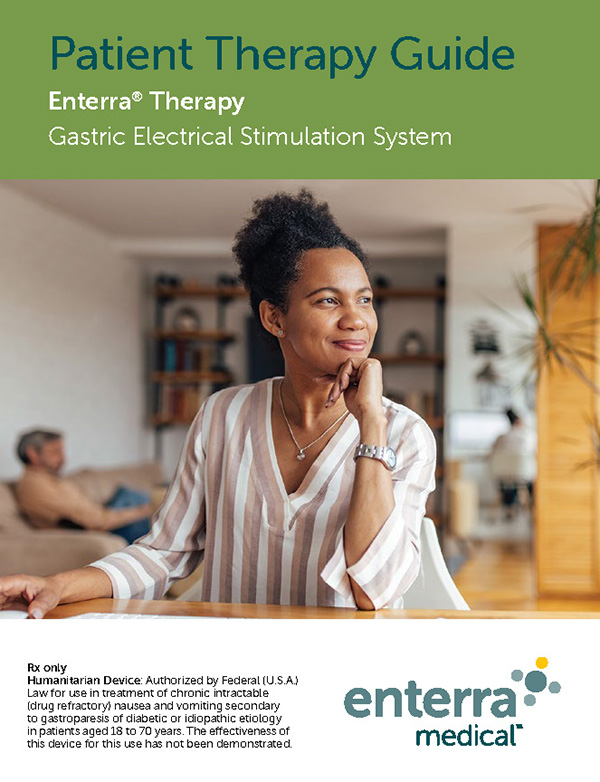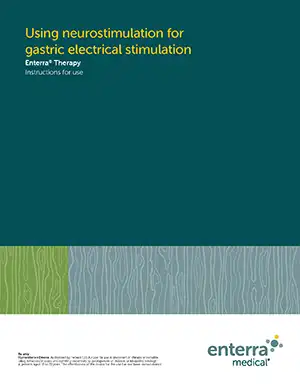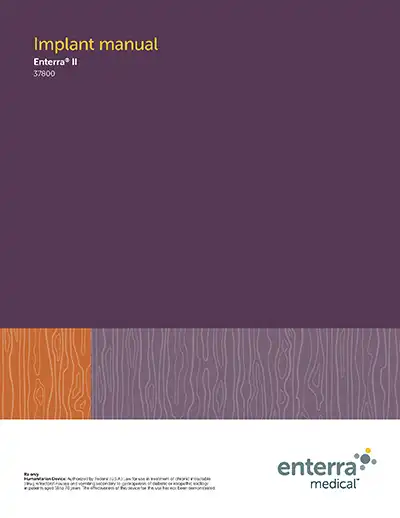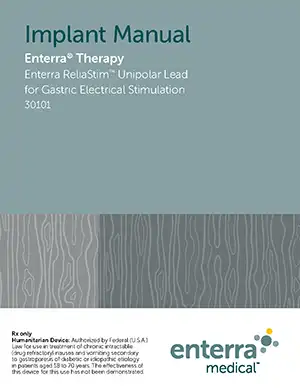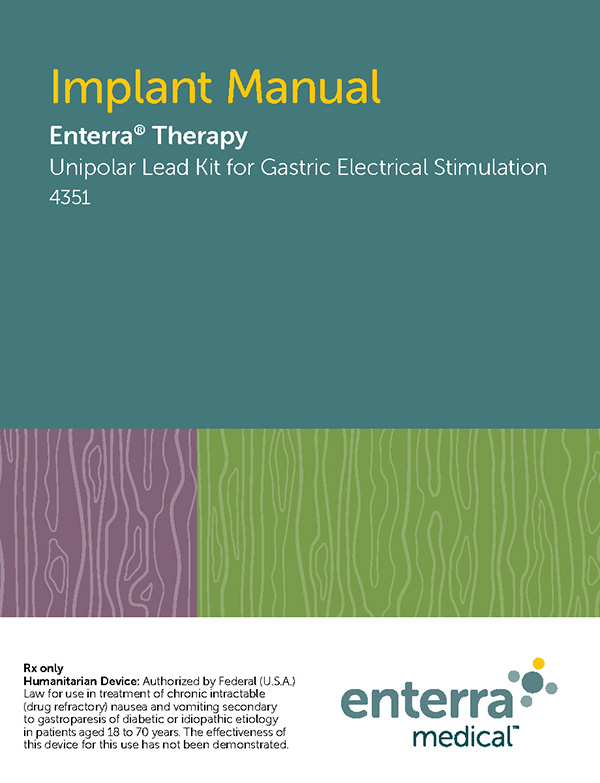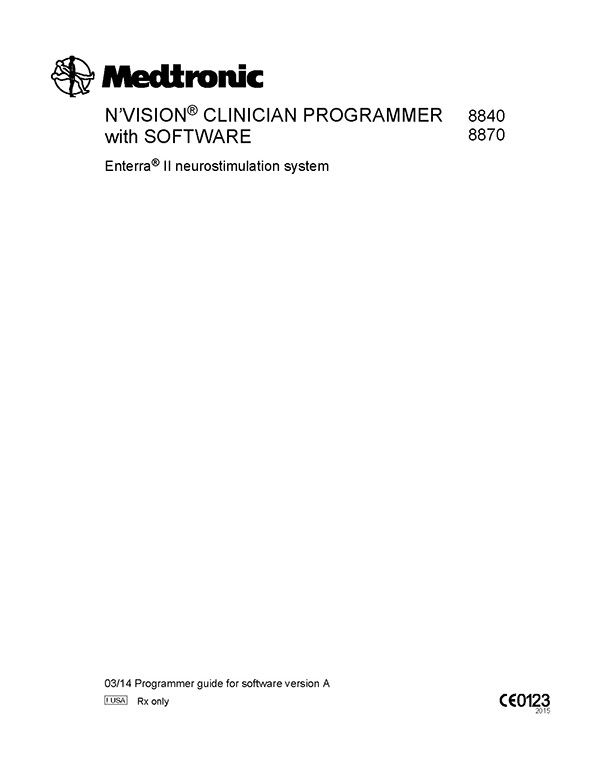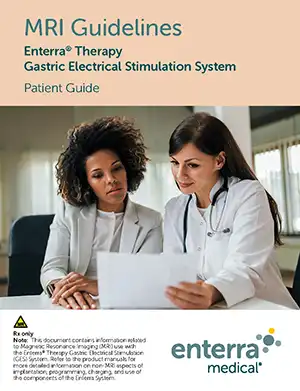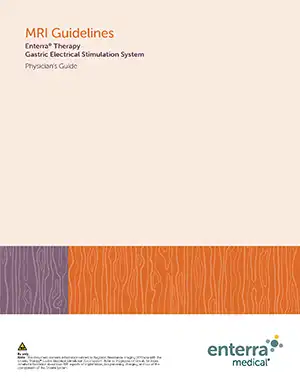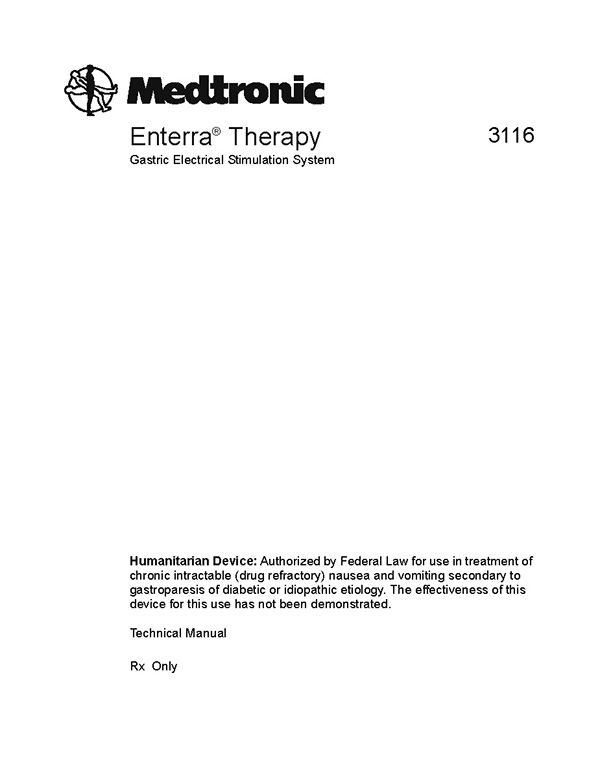Manual library
Patient Therapy Guide
This manual helps patients understand the Enterra® Therapy System. It provides information about the system’s parts and explains how they are implanted. It also provides answers to some common questions.
800-0013-003, Rev A
Prescribers Manual
This manual presents information on the contraindications, warnings, precautions, and patient counseling and selection criteria associated with the use of Enterra Therapy.
800-0012-005, Rev B
Enterra® II 37800 Implant Manual
This manual presents information on the specifications of the Enterra II Neurostimulator and instructions for implanting the device.
800-0009-004, Rev A
Enterra ReliaStimTM 30101: Lead Implant Manual
This manual presents information and instructions for implanting the device using lead model 30101.
800-1993-001, Rev A
Enterra® Therapy 4351: Unipolar Lead Kit Implant Manual
This manual presents information on the specifications of the Enterra II Neurostimulator and instructions for implanting the device using Enterra lead model 4351.
800-0017-003, Rev B
N’Vision® Clinician Programmer with Software 8840 & 8870 Manual
This manual presents instructions for programming the Enterra® II Neurostimulator.
800-0020-001, Rev A
MRI Guidelines: Patient Guide
This manual helps patients understand the guidelines and conditions in which they may receive an MRI with the Enterra II System.
800-00939-003, Rev B
MRI Guidelines: Physician Guide
This manual presents information on MRI guidelines and conditions of the Enterra II System.
800-00938-003, Rev B
Enterra® I 3116 Implant Manual
This manual presents information on the specifications of the Enterra I Neurostimulator and instructions for implanting the device.
800-0016-001, Rev A
Not all products listed for manuals are approved in all geographies.
IMPORTANT SAFETY INFORMATION
Enterra Therapy for treatment of chronic, resistant to medication nausea and vomiting associated with gastroparesis caused by diabetes or an unknown origin in patients aged 18 to 70 years: patients should always discuss potential risks and benefits of the device with their physician.
HUMANITARIAN DEVICE
Authorized by Federal law for use in the treatment of chronic intractable (drug refractory) nausea and vomiting secondary to gastroparesis of diabetic or idiopathic etiology in patients aged 18 to 70 years. The effectiveness of this device for this use has not been demonstrated. What does this mean?

